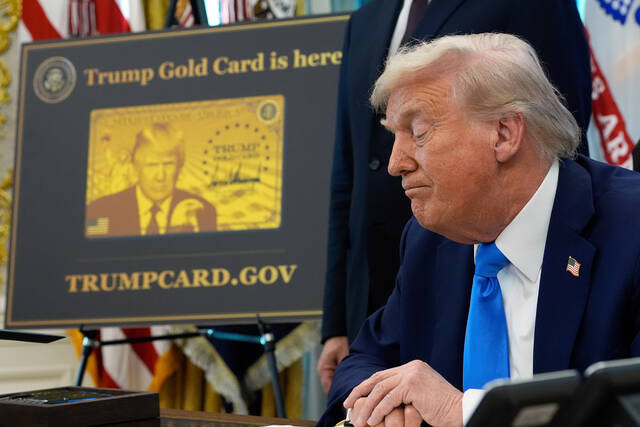With the Census Bureau finally releasing its population data to the states, they will now begin the process of redrawing political boundaries for local, state and congressional seats. Anyone who believes that there is some magic way of keeping politics out of the redistricting process must still believe in the tooth fairy.
In 2019, the U.S. Supreme Court held in Rucho v. Common Cause that partisan redistricting — where elected representatives from the majority political party draw boundary lines to try to give their party an advantage — is a political question beyond the reach of the federal courts. Moreover, the court pointed out that partisan redistricting is “nothing new.”
It was known “in the colonies prior to independence and the framers were familiar with it at the time of the drafting and ratification of the Constitution,” said the court. In fact, the term “gerrymandering” comes from Massachusetts Gov. Elbridge Gerry, whose name is forever linked to partisan map drawing because of a state Senate district he drew in 1812 that looked like a salamander.
Yet the drafters of the Constitution still gave state legislatures the authority to draw congressional boundaries, showing that they expected politics to be part of redistricting. Partisanship is considered a dirty word today, but partisanship is defined by the views and opinions that individuals — and the political party they favor — have about history, culture, society, politics and public policy.
Imposing a rule that legislators cannot take those interests into account — and the interests of the voters who elected them — when drawing political boundaries would destroy a fundamental element of our democratic system. Politics will always play a role in redistricting.
And why shouldn’t it? Politics is involved in who runs for office, who voters choose to represent them, and what those candidates do once they get into office. There really is no way to keep political considerations out of redistricting. Indeed, there are strong arguments against trying to do so.
One thing we know: Partisan redistricting is a very inexact science because American voters are unpredictable, no matter what political consultants may tell you. Additionally, we only redistrict every 10 years, and the makeup of districts can change very quickly because we are a highly mobile society. Thus, there are numerous examples of supposedly “safe” districts at all levels — local, state and federal — being drawn for one political party that have been won by the opposition party.
Some believe we can take politics out of the redistricting process by establishing so-called “independent” redistricting commissions that take the power to draw political lines away from state legislatures. All this does is move the politics and partisanship behind closed doors. Such commissions, whose members are chosen by the political parties and other government officials, are inevitably made up of individuals with partisan interests, despite their public assertions to the contrary.
You can’t take politics out of redistricting, but you can implement commonsense rules that prevent misshapen districts that you need GPS to navigate. Those rules should require that districts be as compact and contiguous as possible. They should follow the lines of natural boundaries like rivers and mountains and political boundaries like city and county lines. That will also lead to representatives who have an interest in representing all of the diverse people of a city, for example, rather than just those who are concentrated in one part of that city.
For more than 200 years, Americans have complained about partisan gerrymandering. But that is how our system works, and despite all of the complaints, we have something many other people around the world envy: a remarkably stable system of governance in which our democracy has never been compromised.
Hans von Spakovsky is a senior legal fellow and manager of the Election Law Reform Initiative at the Heritage Foundation. He is the co-author of the soon-to-be-released book “Our Broken Elections: How the Left Changed the Way You Vote.” He wrote this for InsideSources.com.








